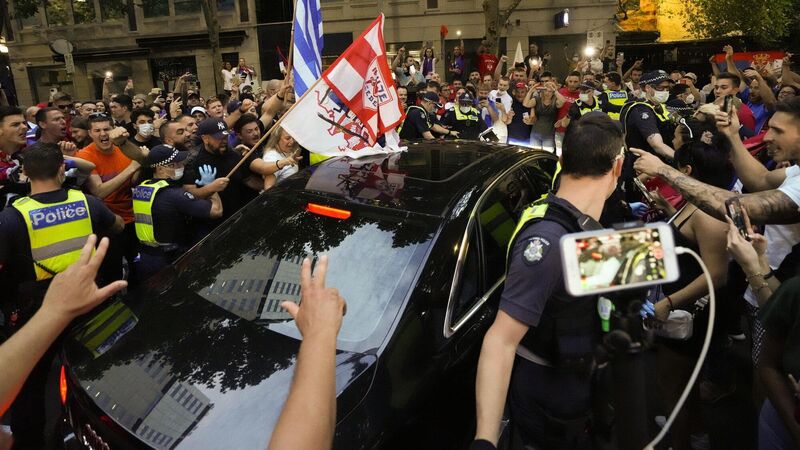Irish Examiner view: We need a plan to heal divisions in a post-pandemic world

In scenes reminiscent of protests against Covid-19 restrictions the world over, supporters of Novak Djokovic clashed with police after the tennis player's court win in Melbourne. Picture: Mark Baker/AP
The five-day saga over whether or not unvaccinated Novak Djokovic, the world’s top-seeded male tennis player, would be granted a visa to compete in the Australian Open had the same kind of tension as the tournament itself. There were divided loyalties, endless back and forth, and suspense that didn’t end when a court found the Serbian player had been treated unfairly after his arrival at a Melbourne airport.
The “circus”, as fellow tennis star Rafael Nadal called it, continues as Australia’s immigration minister may yet cancel Djokovic’s visa.













